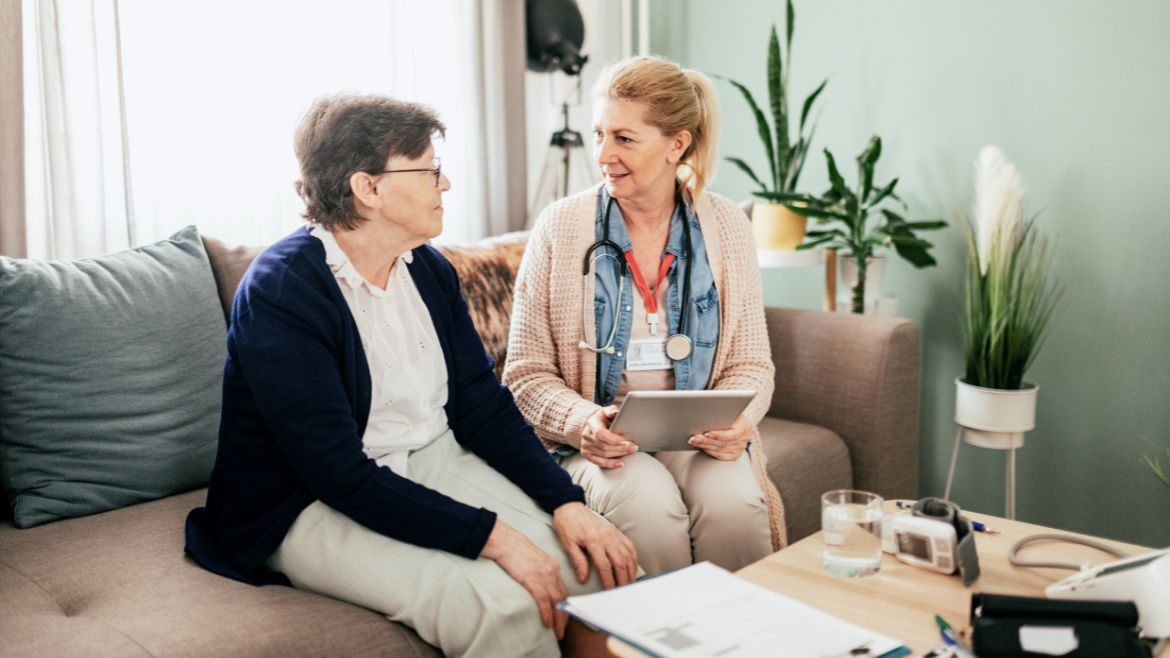Aging & Mental Health
Does Your Loved One Show Signs of Possible Mental Health Issues?
According to the Caregiving in the US 2020 report, about 24% of seniors have mental health issues. This is becoming more and more frequent with seniors. Some of these issues can be a normal part of aging, while others may be the result of health, environment, or life factors. Grief and loneliness are common emotional issues in senior citizens after the death of a spouse or a serious illness for example. Here are some common mental health issues to look out for in your aging loved one:
Generalized Anxiety Disorder (GAD)
The most common form of anxiety among older adults is Generalized Anxiety Disorder (GAD). Most anxiety in seniors is often associated with a traumatic life event such as the death of a loved one, acute illness, or a fall. GAD is characterized as persistent, excessive worry that is difficult to control for at least six months with three or more of the following symptoms:
- Feeling nervous, irritable, or on edge.
- Having a sense of impending danger, panic, or doom.
- Having an increased heart rate.
- Breathing rapidly (hyperventilation), sweating, and/or trembling.
- Feeling weak or tired.
- Difficulty concentrating.
- Having trouble sleeping.
- Experiencing gastrointestinal (GI) problems.
Depression
Older adults with depression visit the doctor and emergency room more often, take more medication, and stay in the hospital longer. Depressive symptoms tend to present as a result of health problems, grief, and social isolation. While depression isn’t considered a normal part of aging, older adults may be more at risk for developing it. Almost half of older adults with depression also meet the criteria for anxiety. Some of the more common signs of depression in seniors include:
- Feelings of sadness, emptiness or hopelessness.
- Fatigue/lack of energy.
- Having a hard time concentrating or remembering things.
- Sleep disruption – either too much or too little sleep.
- Feeling irritable, nervous or guilty for no apparent reason.
- Body aches and pains or headaches.
- Digestive problems/abdominal cramps.
- Changes in appetite.
- Thoughts of suicide.
Cognitive Impairment
Twenty-six percent of caregivers report that their loved one has Alzheimer’s disease or another form of dementia, and thirty-two percent of caregivers report their care recipient has memory problems. More than occasional memory lapses, these types of cognitive impairments make it harder for someone to take care of themselves, and they can become a danger to themselves.
Some signs that your loved one may have more serious memory issues:
- Memory loss interferes with daily life. Your loved one may repeatedly ask for the same information or rely on others to remember things they usually deal with themselves.
- Forgetting how to do familiar tasks. This could include having trouble making a sandwich or managing their budget, or forgetting the rules of a familiar game.
- Personality changes. They may be more confused, suspicious or fearful. They may also get upset more easily and lash out in anger, or they could withdraw and self-isolate.
How Senior Living Can Improve Mental Health
As a caregiver, you want the best for your loved one, and that includes their mental health. If you have concerns, talk to their doctor or care provider to get a diagnosis. Once you have that, you can make a plan so they can get the best treatment and care possible.
Senior living teams work tirelessly to ensure residents are happy, safe, and healthy. Daily activities, socialization, and not having to deal with household chores are just some of the things at a senior living community that can improve a senior’s mental health. If you feel that your loved one could benefit from these amenities, get in touch with us to learn more about our community.

